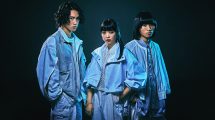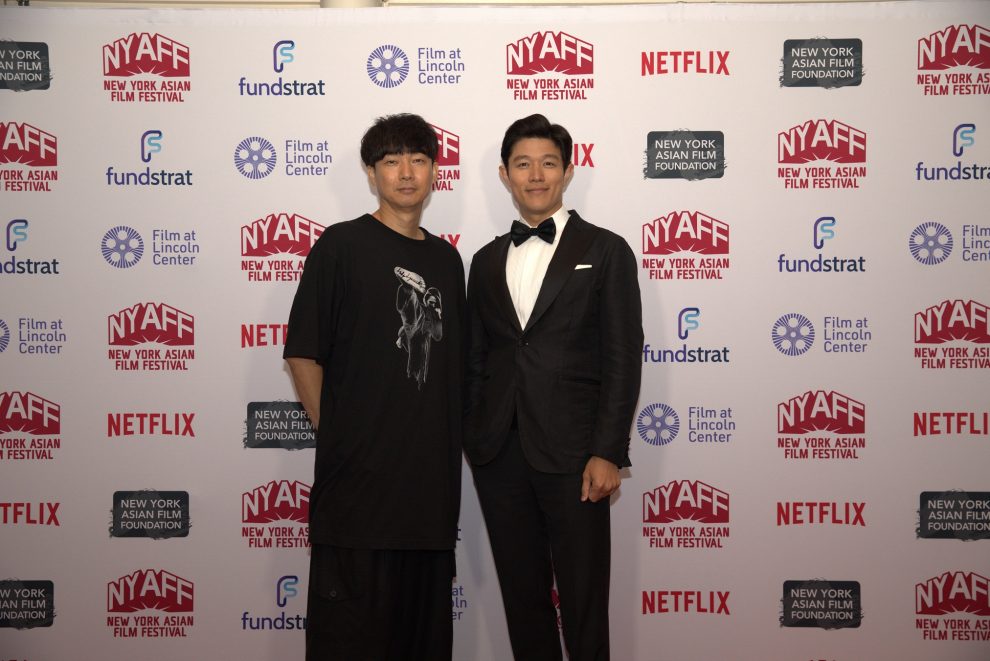Earlier this year, the film “Egoist”, starring Suzuki Ryohei and Miyazawa Hio, was released in Japan. Suzuki plays the role of Saito Kosuke, a fashion editor who falls in love with his personal trainer Nakamura Ryuta, played by Miyazawa. Their love affair serves as the starting point for a film that deals with love in its various forms. The film is based on Takayama Makoto‘s autobiographical novel of the same name.
After showing at last year’s Tokyo International Film Festival, “Egoist” was sold to a number of territories for international release, including the United States. The film made its New York premiere earlier this month at this year’s New York Asian Film Festival, ahead of its wider American release in the fall. At the screening, Suzuki was also presented with the Rising Star Asia Award.
Ahead of the film’s screening, I met with Suzuki and Matsunaga Daishi, the film’s director, to talk about the film. Suzuki’s spoke in English, while Matsunaga spoke in Japanese.
*Warning: There are spoilers in this interview!*
My first question is “Are you the ‘egoist’”?
Suzuki Ryohei: Ohh, you mean Kosuke? I think he is, and I think everyone in the world is.
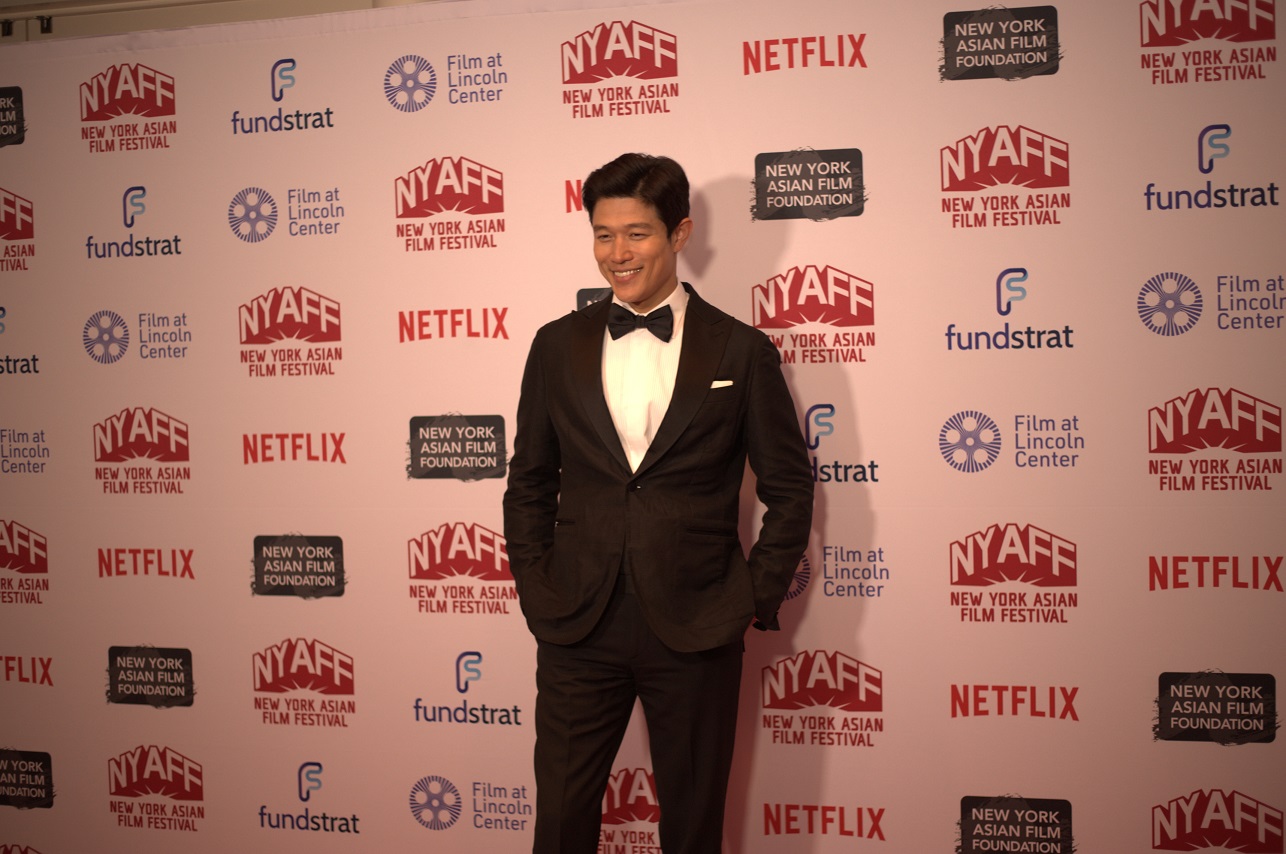
What made you want to take on this project?
Matsunaga Daishi: This film is based on a book by Takayama Makoto. My producer brought this project to me. When I read in the latter half of the book, when Kosuke says to Taeko, Ryuta’s mother, “I don’t know what love is”, and she says, “It doesn’t matter if you know, it matters that the people receiving the love know what is,” when I saw that line, I knew that i wanted to make this film.
Suzuki: I also fell in love with the original book. The director offered the role to me at the Tokyo International Film Festival. I read the book after that, and I was intrigued by it, especially the main theme of “When loving somebody else, are you doing it for them, or for you?” The act of giving to somebody, are you doing something for them or for you? That’s the same theme I’ve been thinking of since I was 20 or so. So I could really relate to that, the author, the main character.
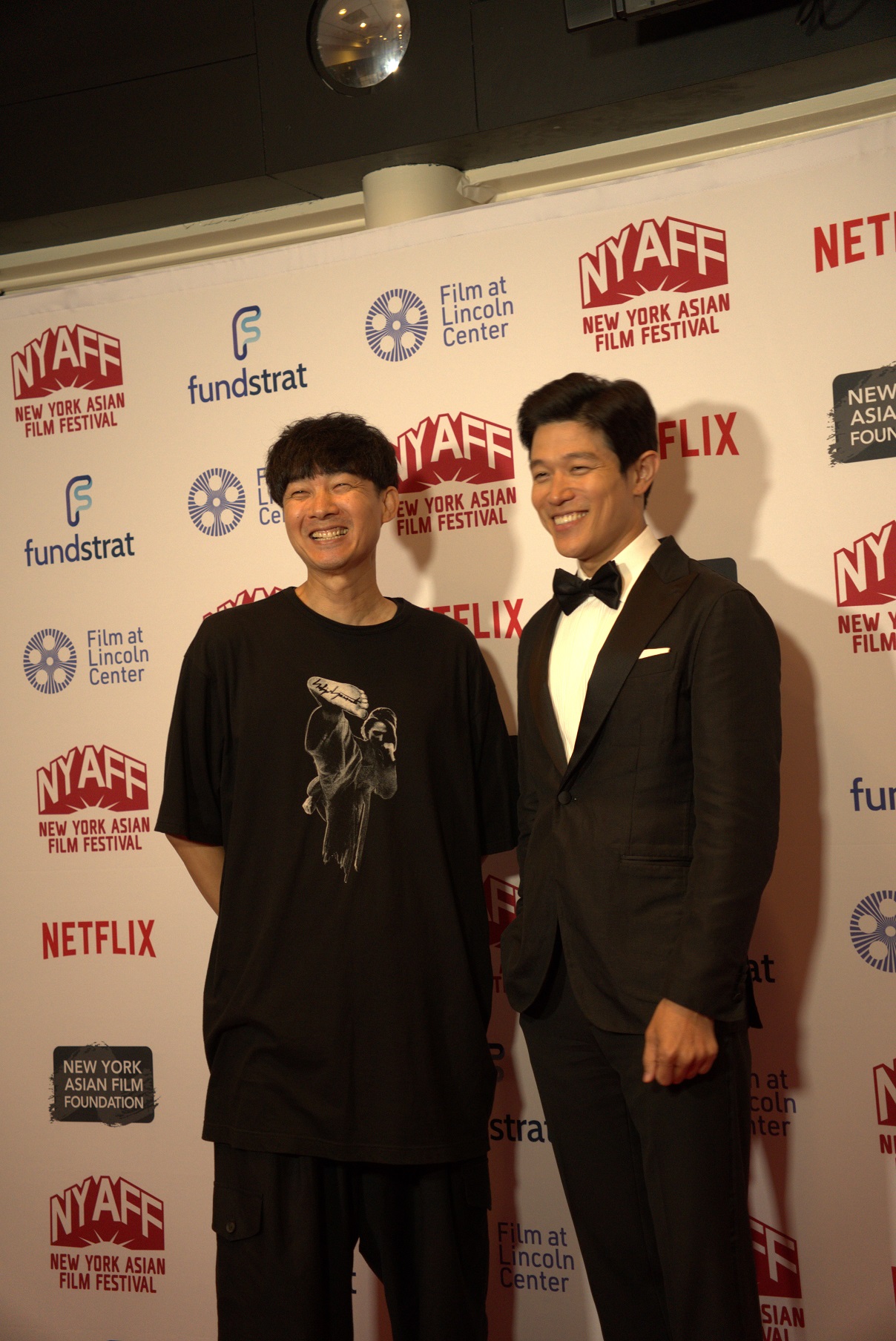
How did you prepare for the film? I’m curious about this, because as a gay man, it felt a bit too realistic. At times, it felt like I was watching my own friend group. The mannerisms, everything just felt very realistic.
Matsunaga: My first film, my directorial debut in 2011, was a documentary where I followed a friend of mine, who is transgender, for ten years. I’ve always had a lot of queer friends. For this film, we hired a LGBTQ+ inclusive director who helped us on all elements of the film. For instance, Kosuke’s gay friends in the film are all non-actors who are gay. The inclusive director helped to cast those people. We were also introduced to an intimacy choreographer, who helped us as well. It was really important to hear from actual voices in the community to try to depict a very contemporary version of what the LGBTQ+ scene in Tokyo is today, so that may be why it felt so realistic.
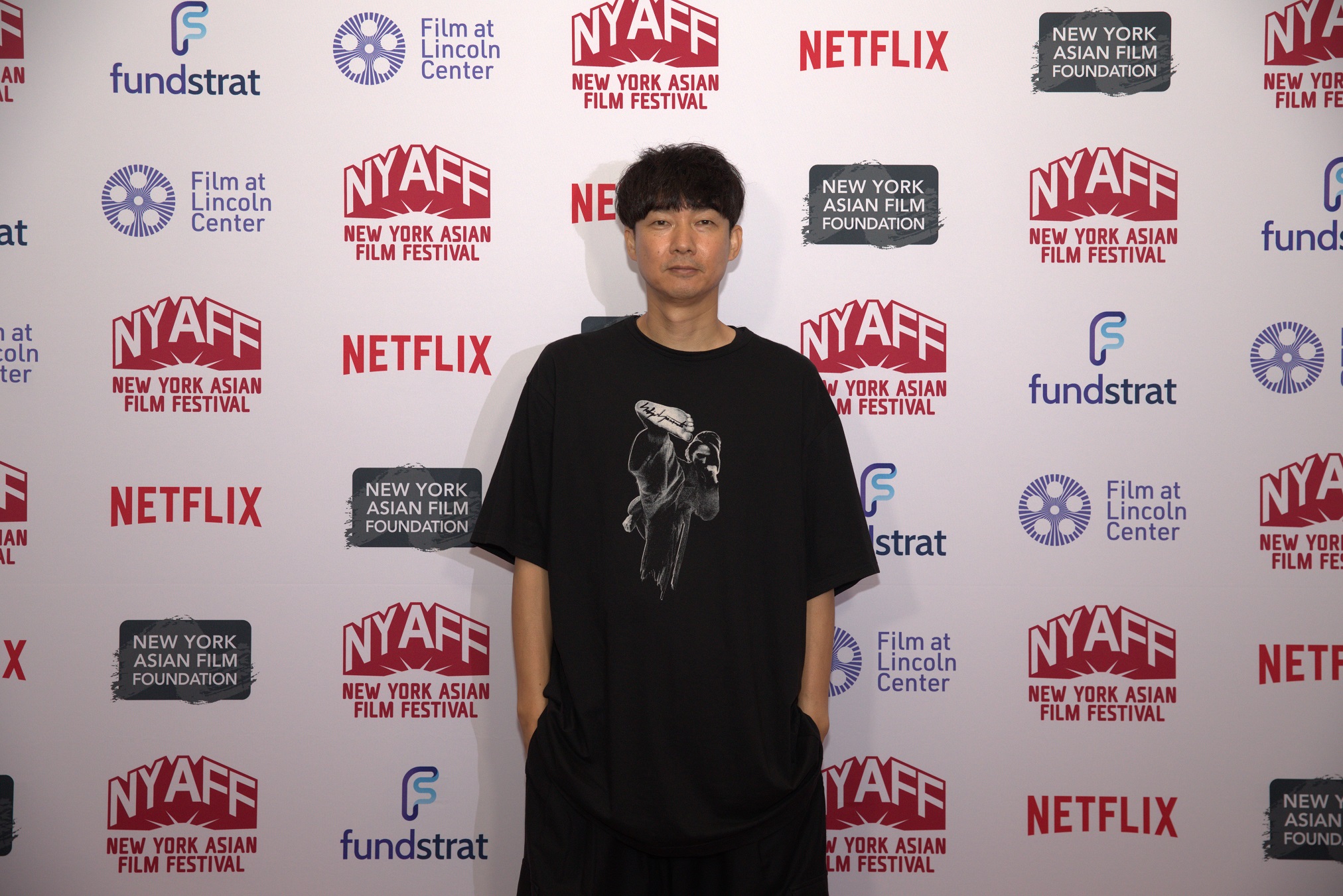
So is this a way of challenging stereotypes?
Matsunaga: In America and Europe, LGBTQ+ themes are discussed much more widely than in Japan, so I felt like there wasn’t that much of an understanding compared to the West. For us to just make a movie that exported these ideas to Japan might not have that much of a connection with audiences there.
Suzuki: I’m really happy that you said it felt realistic, because that’s the thing I was really committed to. First of all, I really believe that representation matters. When I got the offer, I went online to see if there were any openly gay actors in Japan who should do this role instead of me. But I found none at that time, three years ago. So I thought that if I was going to take this role, I have to be 100% committed, and responsible, and respectful of the gay community. Otherwise, I shouldn’t do it. I interviewed so many people, including the author’s friends, and ten to fifteen gay people living in Tokyo, most of whom are from other parts of Japan, similar to Kosuke. I learned from the book too. I watched so many documentaries on LGBTQ+, and I learned what it’s like to be gay in Japan, in both Tokyo and rural areas. As I learned about the LGBT community, I realized how ignorant I was. I was shocked. I have many gay friends. The inclusive director was actually my hairstylist for a long time, but I had no idea what kind of struggles he had until I talked to him about this project. I think I did everything I could do as far as research. We had rehearsals for a week. After every shot, I went to the LGBTQ+ inclusive director and asked if it looked authentic or not. With the sex scenes, I went to the intimacy choreographer, who is also gay, after every shot and asked him if it looked natural.
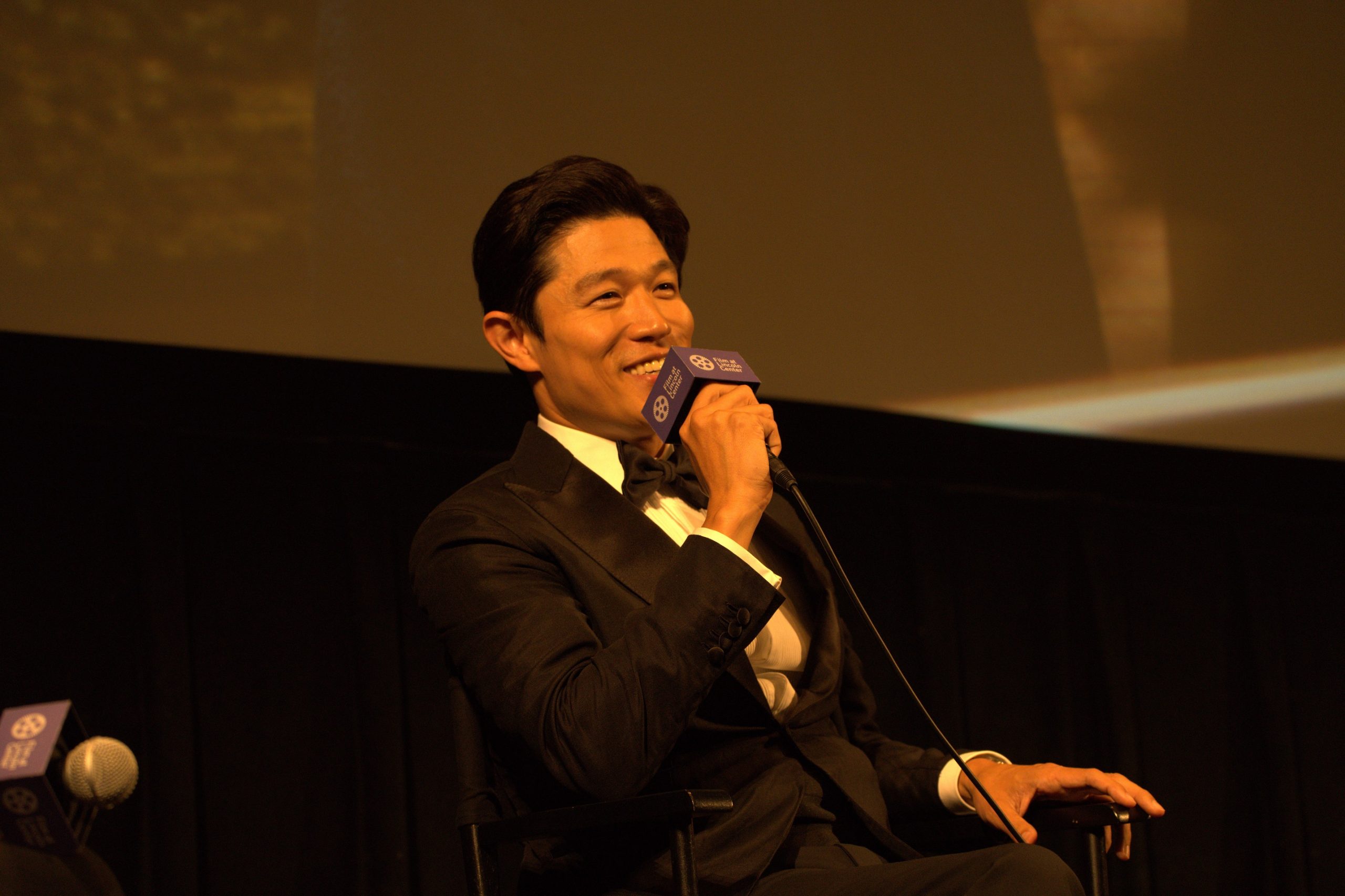
People have commented on how the casting of the movie seems swapped. People assumed that Suzuki would be the personal trainer, and that Miyazawa Hio would be the fashion editor. Can you speak on this?
Matsunaga: When I read the book, I definitely understood what you just said, that maybe the actors were more suited for different roles, but I actually wanted to accentuate that gap between the character and his appearance. With the character of Ryuta, he’s a personal trainer, but he’s not a large man, he actually has a very weak body. I think I was trying to infuse it a bit with my own complex about myself because I struggle to put on muscle as well, but he has this dream to be a personal trainer. Compared to that, Kosuke is someone who is larger, but has this desire to really support people. He expresses this by giving Ryuta all his love. But then Ryuta passes away due to overwork, and that death causes great pain in Kosuke. These are different things that I included that weren’t in the book, but these are the types of relationships I really wanted to highlight, that gap.
Suzuki: An interesting fact about Japan that is different from Western countries is that there are many thin personal trainers, because the main reason Japanese people hire personal trainers is to get thin, to get rid of fat, not to become muscular or get big. The sense of beauty is different. We tend to think that thin men are attractive. But things have started to change in the last few years. We have YouTube now, and there are personal trainers on there with big, perfect muscles, and we are being influenced by that. Men in Japan are getting bigger now. Three years ago, there were many, many thin personal trainers. They were good, they had knowledge, but not big muscles.
This is a gay-themed movie, but it really is for everyone, like you said, to further understanding of LGBTQ+ community. Internationally, there is a particular segment who is quite interested in this film: BL (boys’ love) fans. What do you think of this? Would you call this a BL movie?
Matsunaga: When I set out to make this movie, I really didn’t want to make a movie that would be classified as BL. That’s why I took an approach that felt more like documentary as far as how I lensed it. I wasn’t really trying to make a gay film, it’s more a human film, about human experience, so I’m quite surprised that people want to include it in the BL genre. But why do you think people are including it in this genre?
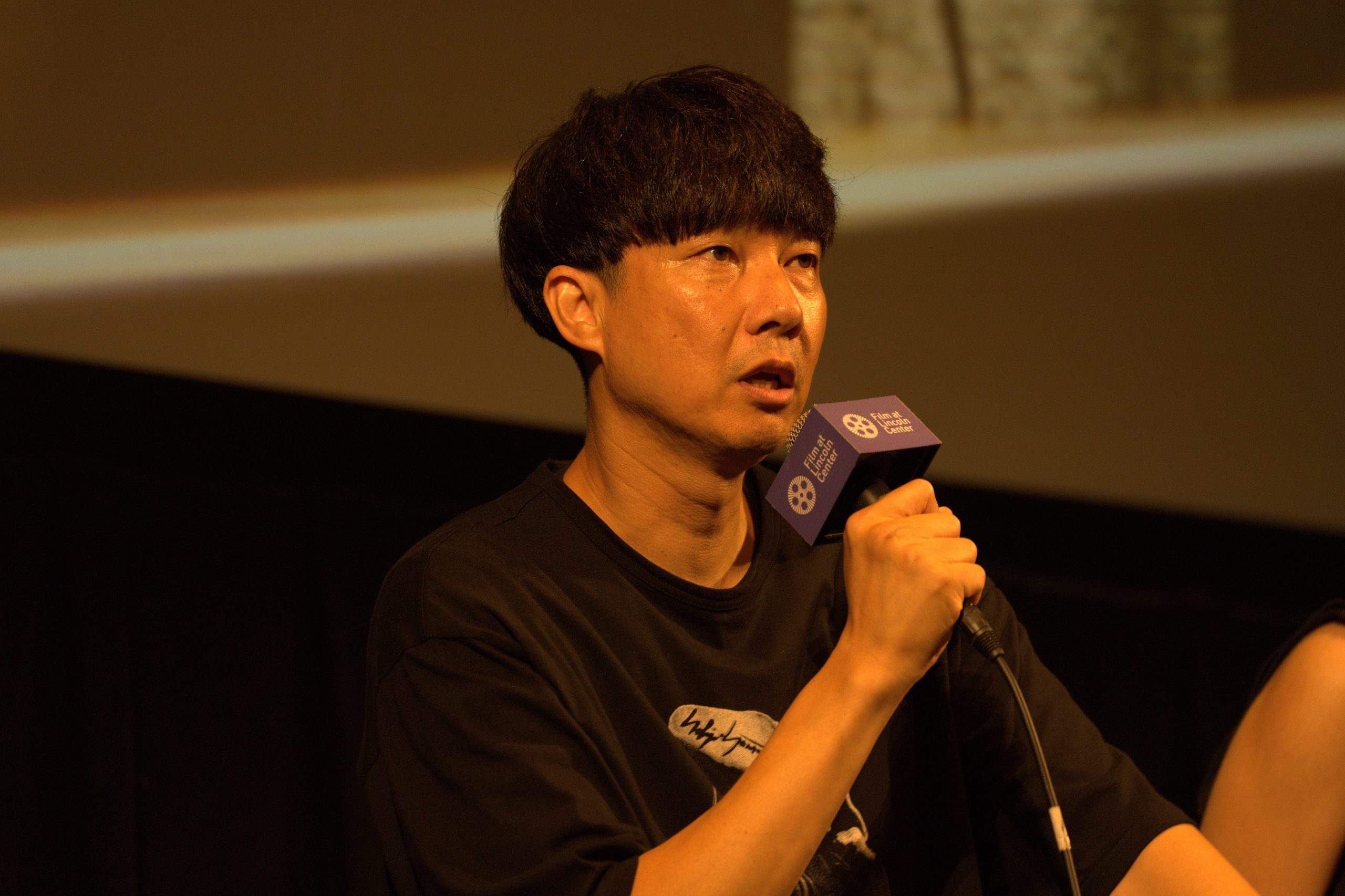
I think because there’s been a growing trend across Asia, in Japan, Thailand, and Korea, of women liking BL content, so there’s not this idea that anything that features men loving other men romantically is BL. But then there’s been this pushback that not everything involving gay men is BL. Like was said earlier, this a gay man’s life story, so it’s a bit distressing that it being reduced to this.
Suzuki: I have nothing against BL, but what we were trying to do is something different. We tried to make a film that the gay community could relate to, not something that other people would look at and imagine what gay life is like. I want the gay audience to watch this and say, “This is our story! This is our life!” As far as I know, BL has a history of being made mainly for a female audience, primarily heterosexual. What we were trying to make was something in a different category, but if people want to put our film in the BL category, there is no problem with that. I’m not offended or anything. We wanted to make a queer film.
Well you did a great job! I have gay friends in Japan, and I told them to go see this and they were quite emotional about it!
Did you mean to touch on the issue of class in the movie?
Matsunaga: That was totally an aim for me in the film, to make clear the class difference. You can see it in various different ways, in their homes, in their clothes. Even when Kosuke waves goodbye to Ryuta, he’s waving from above. So yes, that was something I wanted to make very clear.
Suzuki: I wasn’t aware of it. He didn’t tell me this idea about class, but as I watched the film, I totally felt it. When I was filming it, I couldn’t think about anything else other than being Kosuke. As Kosuke, I knew that Ryuta was poorer than me, but I didn’t think of class. I just thought of working hard, having a decent job, so that I could support myself.
The filling in of the eyebrows… What was that about? There are different moments when Kosuke does it.
Matsunaga: This wasn’t actually in the script, but when we worked with Miyata Ren, the LGBTQ+ inclusive director, we discussed how we put on our clothes, our glasses, about how they serve as a type of armor. We thought it would perhaps be an interesting thing to film, the filling in of the eyebrows. And that there could be a change in Kosuke’s behavior, the more distressed he gets the more he forgets to fill in his eyebrows. So that is something we decided to include.
Suzuki: First of all, not many heterosexual guys in Japan fill in their eyebrows. It’s considered feminine in my generation, but with younger people it’s different. Filling in his eyebrows was part of Kosuke’s gay identity. Right before that scene, Taeko told Kosuke that she was proud of him as a son. That’s what he always wanted to hear from his own mother, but he never did because she died before he could come out about his sexual orientation. He never had the chance to be approved of by his mother, so when Taeko said that he was so touched. He ran into the restroom to do it. It was a moment where he could cry and be vulnerable and break down, but he didn’t do it. Instead, he filled in his eyebrows. I think he’s a very strong person. He had the courage to leave his small hometown and go to Tokyo, and live as he is. Personally, with that scene, I wanted to show his strength, his strong will to live as he is. Although it is an emotionally devastating moment for him, he’s still strong, he’s still standing.
Thank you so much for taking the time out of your busy schedule to speak to me! Any closing words?
Matsunaga: When I made this film, I was very happy that it was going to be internationally released. I was considering audiences in Asia, Europe, and America, but I was really centering this on audiences in Japan. I wanted the themes in the film to speak to audiences in Japan, but it has exceeded my expectations that people overseas watched the film and experienced surprise or were moved by the film. That’s deeply surprising to me, but also inspires a lot of confidence. Regardless of my motivation for making the film, the fact that it is going to have its theatrical run here in the fall just makes me incredibly happy and proud. I’m very much looking forward to the audience reaction overseas to a film made by a Japanese director like myself.
Suzuki: Since I’m here in New York, I’d like to speak on the Screen Actors Guild strike. It’s really inspiring to us, and me personally, what they’re doing, what they’re fighting for. So I would like to show my support and respect for them. You don’t have to include this, but I would be really happy if you did.
Ohh yes, definitely! It’s so crazy what’s going on right now! But thinking of the strike, I can’t help but think that there is going to be a pivot to more foreign content. It’s a bit of a silver lining…
Well, thank you so much for speaking to me! And for making “Egoist”!
Suzuki: I’m really happy you asked about the eyebrows! It’s such a deep question!
I watched the movie and kept thinking, “What is with the eyebrows?!”
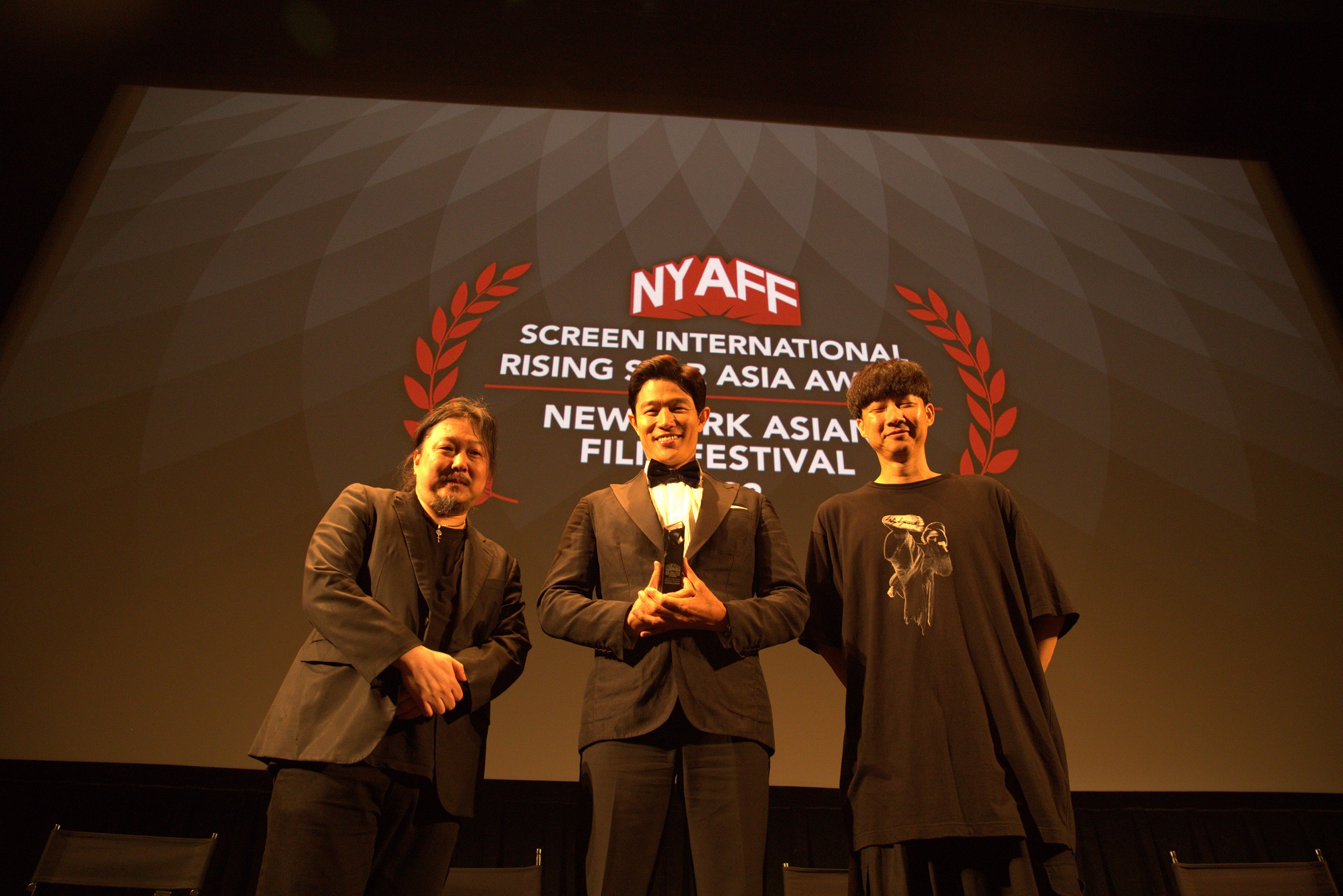
All photos attached to this article are courtesy of New York Asian Film Festival.




